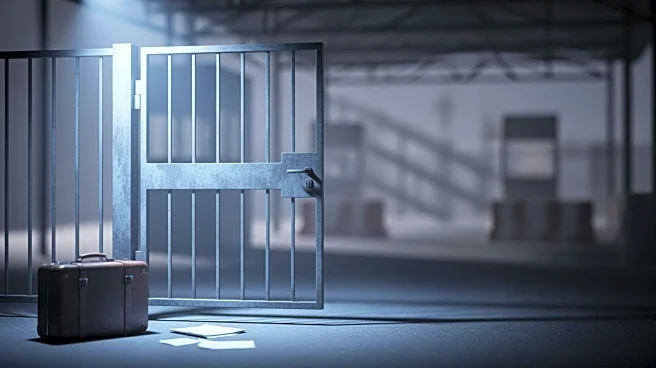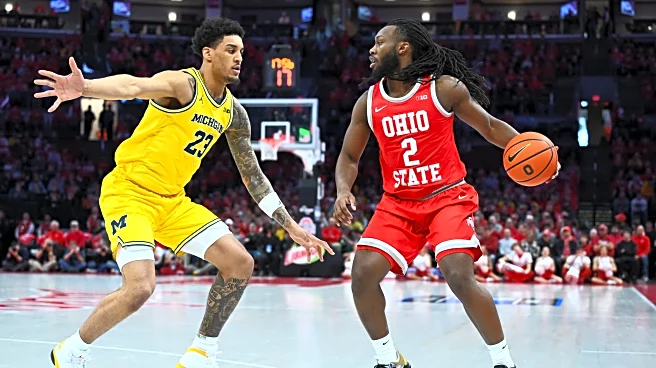What's Happening?
A federal judge in Chicago has indefinitely blocked the deployment of National Guard troops, pending a decision from the U.S. Supreme Court. The ruling extends a temporary restraining order that prevents the deployment, which was part of President Trump's
initiative to send military forces into Democratic-run cities. The legal battle centers on whether the deployment violates the Posse Comitatus Act, which restricts military involvement in domestic law enforcement. The Justice Department is seeking an emergency order from the Supreme Court to allow the deployment, arguing that the restraining order causes irreparable harm to the executive branch.
Why It's Important?
This case underscores the ongoing legal and constitutional debates over the president's authority to deploy military forces domestically. The decision could have significant implications for the separation of powers and the role of the military in civilian law enforcement. The outcome may affect federal strategies for addressing civil unrest and influence future presidential actions in similar situations. The case also highlights the tension between federal and local authorities, particularly in cities governed by political opponents of the administration.
What's Next?
The Supreme Court's decision will be pivotal in determining the future of the National Guard's role in Chicago and potentially other cities. If the court sides with the administration, it could pave the way for increased federal intervention in local matters. Conversely, a decision against the deployment could reinforce state and local autonomy. The ruling will likely influence ongoing legal challenges in other jurisdictions, such as Portland and Washington, D.C., where similar issues are being contested.
















